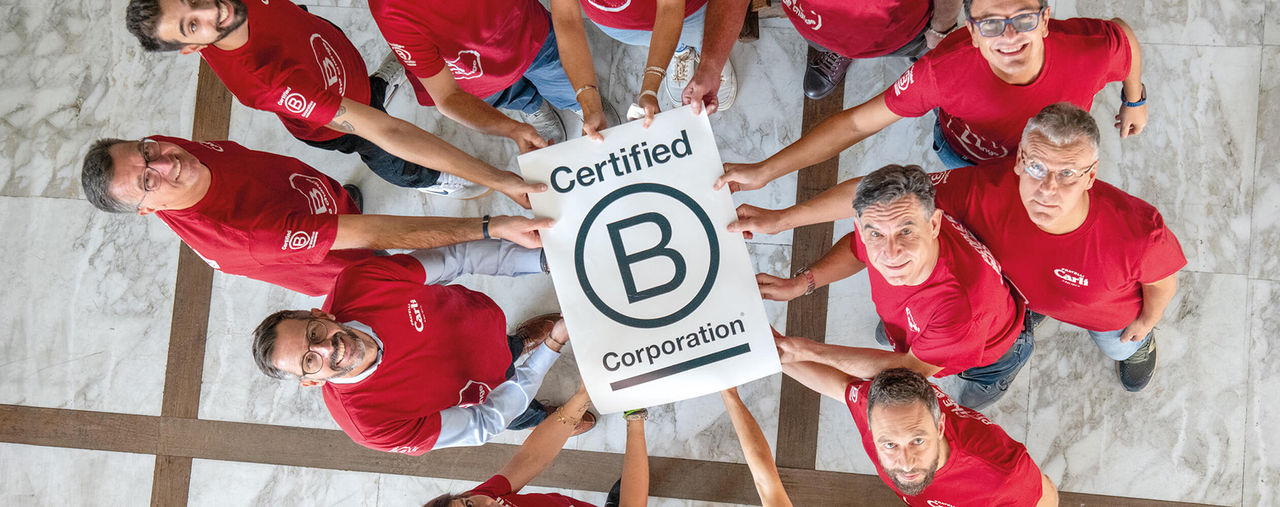The "B Corporation Certification" is a mark that is licensed by B Lab, a private non-profit organization, to companies that, like ours, have successfully passed the B Impact Assessment ("BIA") and thus meet B Lab's requirements in terms of social and environmental performance, accountability and transparency.
It is specified that B Lab is not a conformity assessment body within the meaning of Regulation (EU) No 765/2008 or a standardization body within the meaning of Regulation (EU) No 1025/2012 and that the BIA is independent of harmonised standards and is not ratified by public institutions.


